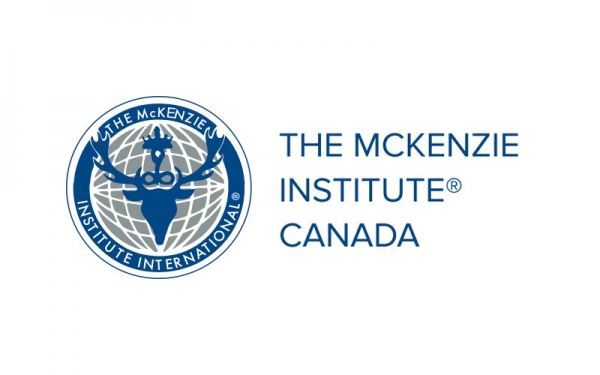McKenzie MDT Part A Online (Atlantic Region)
Course Sponsor/Host: McKenzie Institute Canada
Location: Online
Registration Dates: Open
Registration Fees: $695.00
Registration Form: Download Form
Description:
Mechanical Diagnosis and Therapy® MDT: A reliable assessment & classification system for the spine & extremities, that leads you to an effective treatment strategy for your patients. To be effective, treatment strategies first require a thorough and accurate assessment. Backed by years of research, evidence and clinical practice. Now is the perfect time to discover why thousands of clinicians worldwide rely on MDT to improve their patient outcomes.
Expect to deliver results. Accurately, assess and diagnose and effectively treat clients suffering with mechanical ailments using the McKenzie MDT system.
4 Sessions Online with live instruction / ATLANTIC TIME
Session 1: Asynchronous online at your own pace
Session 2 SUN 06JUL: Online live with instructor 8:00AM–1:30PM (AT)
Sessions 3: SAT/13JUL Online live with instructor 10:00AM–5:15PM (AT)
Sessions 3: SUN/14JUL Online live with instructor 10:00AM–5:15PM (AT)
Legitimate patient demonstrations with follow-up appointments take place during the course.
Practical sessions also take place during the course.
Instructor: Fiona MacKenzie PT, Dip. MDT
Note: For further details please refer to course page on the MICanada website.
Register at: http://www.mckenzieinstitutecanada.org
FEEDBACK FROM FELLOW CLINICIANS ON RECENT COURSES:
- MDT is a game changer in my Physiotherapy practice, patients recover so fast once directional preference is identified.
- I feel so much more confident treating complex and unusual symptomatic patients with the MDT system. I know it will help me effectively classify them and give them an effective treatment plan.
- My knowledge of MDT increased significantly, particularly with the amount of different options/variations there are w/ assessment and treatment, e.g., the lateral component and how many different options there are to try to incorporate that into an exercise. I have also learned the significant benefits of force progressions and not needing to immediately perform manual therapy on someone before doing a proper movement screen and giving the patient the opportunity to self-manage.
- I'm now more comfortable understanding the importance of working full neck extension ROM and to differentiate upper and lower cervical spine movements.
ASSESS & DIAGNOSE AND TREAT WITH CONFIDENCE
MDT is a comprehensive biopsychosocial classification system that enables clinicians to reliably classify specific sub-groups and successfully match the classification to the appropriate treatment. The MDT system also identifies if the patient is unsuitable for mechanical therapy. A full history can exclude patients with serious pathology or non-mechanical pain that require medical referral or non-mechanical treatment approaches. With a thorough knowledge of the three syndromes (derangement, dysfunction and posture) a trained clinician can identify directional preference, centralization or other consistent mechanical responses in keeping with the MDT syndromes and their predicted response to treatment. Once the syndromes are ruled out, the clinician can more accurately identify other diagnoses such as SIJ, spinal stenosis, symptomatic spondylolithesis or non-mechanical presentations unsuitable for mechanical therapy [Danish Institute for Health Technology Assessment (1999) American College of Occupation and Environmental Medicine (2005)].
Course Goals:
This course will provide participants with the introductory knowledge and basic skills to begin to:
- Describe and discuss the principles of MDT and how they fit within the biopsychosocial framework, for patients with lumbar spine problems and functional limitations.
- Appropriately apply the McKenzie Method of MDT to patients with lumbar spine problems.
- Distinguish between the MDT syndromes (Derangement, Dysfunction, Postural) and OTHER subgroups and provide appropriate management plans for each.
- Identify when the application of external forces is required, using MDT’s concept of ‘Progression of Forces’.
- Recognise how to assist patients to design and apply the therapeutic processes to achieve their goals, taking into account any personal or environmental barriers to recovery.

